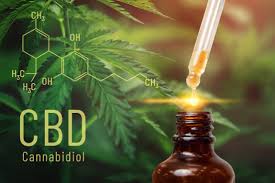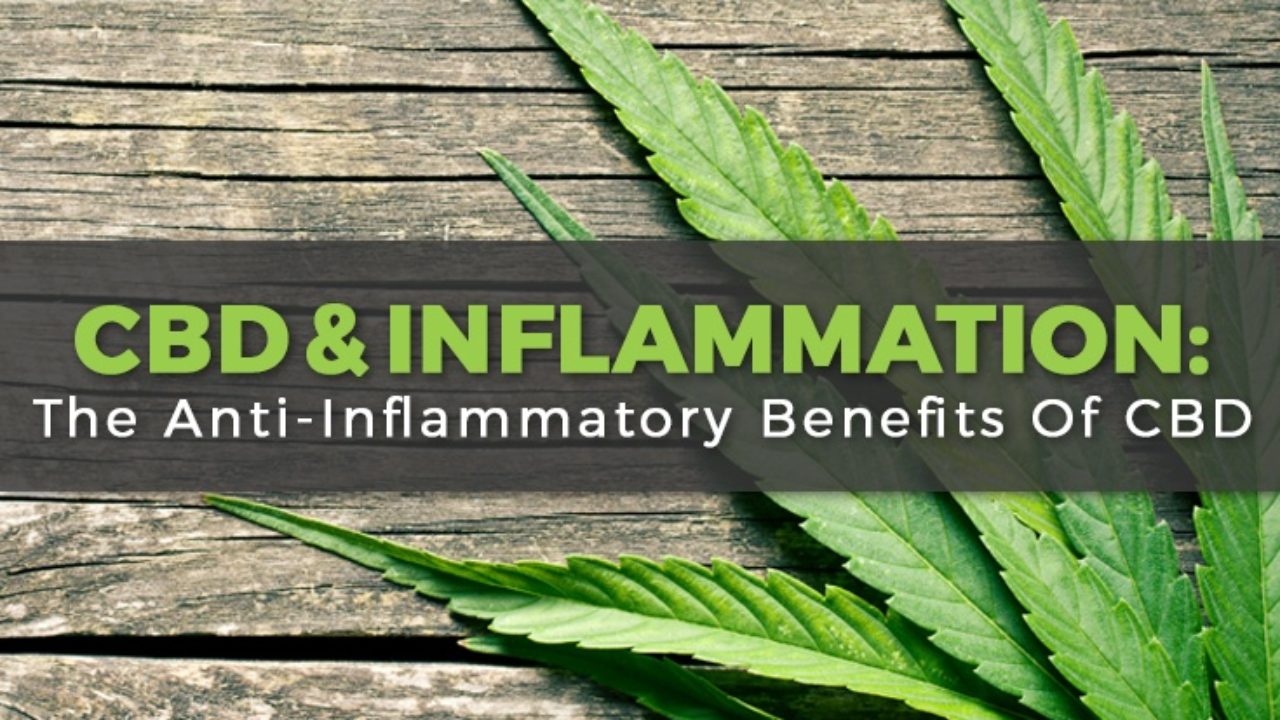What is CBD, and why is it popular?
In recent years, Cannabidiol, commonly known as CBD, has gained significant popularity in the health and wellness industry. From its humble origins to its widespread use, CBD has emerged as a versatile compound with many potential benefits. But what exactly is CBD, and why is it capturing the attention of so many?
CBD is one of over 100 chemical compounds, known as cannabinoids, found in the Cannabis sativa plant. Unlike its well-known counterpart, THC (tetrahydrocannabinol), CBD does not produce any psychoactive effects. This means it won’t get you high or alter your mind. Instead, CBD offers a range of potential health benefits without the intoxicating side effects associated with THC.
The popularity of CBD can be attributed to its versatility and wide range of potential applications. People are turning to CBD as a natural alternative for managing various health concerns, including pain, anxiety, insomnia, and neurological disorders. Moreover, CBD has shown promise in promoting skin health and managing certain skin conditions.
As the interest in CBD grows, so does the curiosity surrounding its potential benefits. People seek reliable information to understand how CBD works, its different forms, optimal usage, and potential side effects. This comprehensive guide aims to provide a detailed exploration of CBD, shedding light on its properties, health benefits, usage, and more.
So, if you’ve ever wondered what CBD can do for you and why it has become such a popular topic, join us as we delve into the fascinating world of CBD. Discover the science behind this remarkable compound and uncover its potential for improving your well-being. Let’s unlock the secrets of CBD together.
To learn more about what CBD is, continue reading.
Understanding CBD
As the popularity of CBD continues to soar, it’s important to have a solid understanding of what it is and how it works. In this section, we will delve into the basics of CBD, explore the difference between CBD and THC, and uncover how CBD interacts with the body.
What is CBD?
CBD, short for cannabidiol, is a naturally occurring compound in the cannabis plant. Unlike its cousin THC, CBD does not produce psychoactive effects, meaning it won’t get you high. Instead, it offers many potential health benefits, making it a popular choice for those seeking natural remedies.
The Difference between CBD and THC
While CBD and THC are cannabinoids in cannabis, they have distinct properties and effects. THC is the primary psychoactive compound in cannabis, responsible for the euphoric “high” associated with marijuana use. On the other hand, CBD does not have intoxicating effects and is commonly used for its therapeutic properties.
How CBD Works in the Body
To understand how CBD works in the body, it’s important to familiarize yourself with the endocannabinoid system (ECS). The ECS is a complex network of receptors and neurotransmitters that helps regulate various bodily functions, including mood, pain sensation, sleep, and immune response.
CBD interacts with the ECS when consumed by binding to cannabinoid receptors, known as CB1 and CB2 receptors, located throughout the body. Depending on the specific receptors involved, this interaction can stimulate or inhibit certain functions.
For example, CBD has been found to activate serotonin receptors, which regulate mood and anxiety. By doing so, CBD may help alleviate anxiety symptoms and promote a sense of calm. Additionally, CBD has been shown to interact with receptors in pain perception, potentially offering relief for those suffering from chronic pain conditions.
Furthermore, CBD has been found to have anti-inflammatory properties, which may benefit individuals dealing with inflammatory conditions such as arthritis or autoimmune disorders. Its antioxidant properties also contribute to its potential therapeutic effects.
Overall, CBD influences the body by interacting with various receptors and neurotransmitters, modulating their activity and promoting a state of balance known as homeostasis.
As you can see, CBD is a fascinating compound with many potential benefits. In the next section, we will explore some of the specific health benefits associated with CBD, including pain management, anxiety relief, improved sleep, and potential benefits for neurological disorders.
Continue reading: Benefits of CBD
Health Benefits of CBD
CBD has gained significant attention recently due to its potential health benefits. Research suggests that CBD may offer a range of therapeutic effects, making it a promising option for those seeking alternative remedies. This section will delve into some of the key health benefits associated with CBD.
Pain Management
One of the most well-known benefits of CBD is its potential as a natural pain reliever. CBD interacts with the body’s endocannabinoid system (ECS), which is crucial in regulating various bodily functions, including pain perception. By activating receptors in the ECS, CBD may help reduce inflammation and alleviate pain.
Numerous studies have explored CBD’s analgesic properties, particularly in chronic pain conditions such as arthritis and fibromyalgia. Some individuals have reported significant relief from their symptoms after using CBD products, including CBD tinctures, CBD capsules, and CBD topicals.
Anxiety and Stress Relief
In today’s fast-paced world, anxiety and stress have become prevalent issues for many individuals. CBD has shown promise as a potential natural remedy for these conditions. CBD is believed to interact with receptors in the brain that regulate mood and emotions, such as serotonin receptors. By influencing the serotonin system, CBD may help reduce anxiety and promote a sense of calm.
Research suggests that CBD may be effective in managing various anxiety disorders, including generalized anxiety disorder (GAD), social anxiety disorder (SAD), and post-traumatic stress disorder (PTSD). CBD may also help alleviate stress-related symptoms, such as restlessness and insomnia.
Improved Sleep
Sleep plays a vital role in overall health and well-being. However, many individuals struggle with sleep-related issues, such as insomnia and restless nights. CBD has emerged as a potential natural sleep aid, with some individuals reporting improved sleep quality and duration after using CBD products.
CBD’s ability to interact with the ECS may contribute to its sleep-promoting effects. By regulating sleep-wake cycles and promoting relaxation, CBD may help individuals fall asleep faster and experience more restful sleep. It is worth noting that further research is needed to understand the mechanisms behind CBD’s sleep-enhancing properties fully.
Potential Benefits for Neurological Disorders
Emerging research suggests that CBD may hold promise in treating neurological disorders. Conditions such as epilepsy, multiple sclerosis (MS), and Parkinson’s disease have shown potential for improvement with CBD.
In the case of epilepsy, CBD has garnered significant attention for its ability to reduce the frequency and severity of seizures. The first FDA-approved CBD medication, Epidiolex, is specifically designed to treat certain types of epilepsy.
While more research is needed, preliminary studies indicate that CBD may also have neuroprotective properties, potentially slowing the progression of neurodegenerative disorders. This exciting research area holds promise for the future of CBD as a therapeutic option.
Skin Health
CBD’s potential benefits extend beyond internal health. It is increasingly being recognized for its potential to promote healthy skin. CBD-infused skincare products have gained popularity due to their potential anti-inflammatory and antioxidant properties.
CBD may help reduce inflammation and redness associated with skin conditions like acne, eczema, and psoriasis. Additionally, its antioxidant properties may help combat the damaging effects of free radicals, which contribute to premature aging.
Furthermore, CBD topicals such as creams and balms may provide localized relief for muscle soreness and joint pain. Many individuals find these products a natural and effective alternative to traditional topical pain relievers.
In conclusion, CBD offers a range of potential health benefits. CBD continues to be the subject of extensive research, from pain management and anxiety relief to improved sleep and skincare. As always, it is important to consult with a healthcare professional before incorporating CBD into your wellness routine.
Different Forms of CBD
When it comes to exploring the world of CBD, one of the most exciting aspects is the variety of forms in which it can be found. Each form offers unique benefits and usage methods, allowing individuals to choose the best for their preferences and needs. This section will delve into the different forms of CBD and shed light on their characteristics.
CBD Oil: CBD oil is perhaps the most popular and versatile form of CBD. It is typically derived from hemp plants and can be consumed orally or topically. CBD oil is known for its potency and fast-acting effects, making it a favorite among many enthusiasts. It can be easily incorporated into daily routines and has different strengths, allowing users to adjust their dosage according to their desired effects.
CBD Edibles: If you have a sweet tooth or enjoy the convenience of on-the-go consumption, CBD edibles might be the perfect option for you. These delicious treats come in various forms, such as gummies, chocolates, and even baked goods. CBD edibles offer a discreet and enjoyable way to incorporate CBD into your daily routine, making them a popular choice for those seeking long-lasting effects and easy dosing.
CBD Topicals: CBD topicals are specifically designed for localized relief and are applied directly to the skin. They come in the form of lotions, creams, balms, and salads. CBD topicals are commonly used for targeting specific areas of discomfort or inflammation, providing soothing relief when applied directly to the affected area. They are also popular for skincare routines, as they may help promote healthy skin and alleviate certain skin conditions.
CBD Capsules: For those who prefer a more traditional approach to supplementation, CBD capsules are an excellent option. These capsules contain a pre-measured CBD oil dosage and are taken orally, just like any other supplement. CBD capsules offer a convenient and familiar way to incorporate CBD into your daily routine, making them an ideal choice for those who value simplicity and precise dosing.
It’s important to note that the form of CBD you choose will ultimately depend on your personal preferences and desired effects. Whether you prefer the versatility of CBD oil, the delectable nature of CBD edibles, the targeted relief of CBD topicals, or the familiarity of CBD capsules, there is a form of CBD out there to suit your needs.
Next, let’s explore the important topic of CBD usage and dosage, as finding the right dosage is crucial for experiencing the full benefits of CBD.
CBD Usage and Dosage
When it comes to using CBD, finding the right dosage is crucial for achieving optimal results. CBD is not a one-size-fits-all remedy, and the dosage for one person may not work for another. In this section, we will explore how to find the right dosage, potential side effects, and the legality of CBD.
Finding the Right Dosage
Determining the right dosage of CBD can be a bit of a trial-and-error process. Factors such as body weight, metabolism, and the severity of the treated condition all play a role in finding the optimal dosage. It is always recommended to start with a low dosage and gradually increase it until the desired effects are achieved.
CBD products typically come with recommended dosage instructions on the packaging. However, these guidelines are often general and may not be tailored to your specific needs. Consulting with a healthcare professional experienced in CBD usage can provide valuable guidance in determining your right dosage.
Another approach to finding the right dosage is to start with a standard dosage and monitor its effects. If the desired results are not achieved, gradually increase the dosage until the desired effects are experienced. It’s important to give each dosage adjustment enough time to take effect before making further changes.
Potential Side Effects
While CBD is generally well-tolerated, it is important to be aware of potential side effects. Most side effects of CBD are mild and temporary. These may include dry mouth, drowsiness, and changes in appetite. It is worth noting that these side effects are rare and tend to occur at higher dosages.
It is also important to consider the potential interactions between CBD and other medications. CBD can interact with certain medications, such as blood thinners, so it is crucial to consult with a healthcare professional if you are taking any medications.
Legality of CBD
The legality of CBD varies from country to country and even within different states or regions. In the United States, for example, the 2018 Farm Bill legalized CBD derived from hemp as long as it contains less than 0.3% THC. However, CBD derived from marijuana is still illegal at the federal level.
Before purchasing or using CBD, it is important to research and understand your area’s specific laws and regulations. This will ensure that you comply with the legal requirements and can use CBD safely and confidently.
In conclusion, finding the right dosage of CBD is crucial for maximizing its benefits. It is recommended to start with a low dosage and gradually increase it while monitoring the effects. It is important to be aware of potential side effects and consult a healthcare professional if you have any concerns. Additionally, understanding the legality of CBD in your area will ensure that you can use it safely and legally.
Frequently Asked Questions
As the popularity of CBD continues to soar, it’s only natural that people have questions. This section will address some of the most commonly asked questions about CBD.
Is CBD Addictive?
One of the primary concerns people have about CBD is whether or not it is addictive. The short answer is no. CBD, or cannabidiol, is a non-addictive compound that does not produce the euphoric high associated with its counterpart, THC. Studies have shown that CBD may even have the potential to help individuals overcome addiction to substances such as opioids and nicotine. However, it’s important to note that more research is needed to understand CBD’s effects on addiction fully.
Can CBD Make You High?
Another frequently asked question is whether or not CBD can make you high. The answer is no; CBD alone does not produce a psychoactive effect or make you feel “stoned.” Unlike THC, the psychoactive compound found in marijuana, CBD does not directly bind to the same receptors in the brain. Therefore, you can enjoy the potential benefits of CBD without experiencing any mind-altering effects.
How Long Does It Take for CBD to Work?
The time it takes for CBD to take effect can vary depending on several factors, including the method of consumption and individual body chemistry. When ingesting CBD orally, such as through CBD capsules or edibles, it typically takes 30 minutes to 2 hours for the effects to be felt. On the other hand, when using sublingual tinctures, where CBD is placed under the tongue and absorbed directly into the bloodstream, the effects may be felt within 15-30 minutes. The effects of topical CBD products, such as creams or lotions, are generally localized and can be felt within minutes.
It’s important to remember that CBD affects everyone differently, so finding the right dosage and method of consumption may require some experimentation. Patience and consistency are key when incorporating CBD into your wellness routine.
In the next section, we will conclude our comprehensive guide by summarizing CBD’s key points and benefits. Stay tuned!
Conclusion
In conclusion, CBD has emerged as a popular natural remedy for various health conditions. Its non-intoxicating properties and potential therapeutic benefits have captured the attention of individuals seeking alternative solutions to their health concerns.
Throughout this comprehensive guide, we have explored the fundamental aspects of CBD, shedding light on its definition, differences from THC, and mechanisms of action in the body. We have delved into its potential health benefits, ranging from pain management and anxiety relief to improved sleep and potential benefits for neurological disorders. Additionally, we have discussed the various forms of CBD available, including oils, edibles, topicals, and capsules, providing options for different preferences and needs.
When it comes to CBD usage, finding the right dosage is crucial. While there is no one-size-fits-all approach, starting with a low dose is recommended and gradually increasing until the desired effects are achieved. Though CBD is generally well-tolerated, potential side effects such as fatigue, dry mouth, and changes in appetite should be considered.
It is important to note that the legality of CBD varies across different regions and countries. While CBD derived from hemp is federally legal in the United States, it is essential to familiarize oneself with local regulations to ensure compliance.
To address common inquiries, we have also addressed frequently asked questions, debunking misconceptions surrounding CBD addiction and the potential to induce a high. Furthermore, we have provided insights into the time it takes for CBD to take effect, allowing individuals to manage their expectations accordingly.
As the field of CBD research continues to expand, more knowledge and understanding will be gained about its potential applications and benefits. It is always advisable to consult with a healthcare professional before incorporating CBD into your wellness routine, especially if you have any underlying medical conditions or are taking other medications to avoid potential interactions.
In summary, CBD represents a promising avenue for those seeking natural alternatives to support their well-being. Whether you seek relief from pain, anxiety or improved sleep, CBD offers a holistic approach that may complement your wellness practices. With its growing presence in the health and wellness industry, CBD is set to continue captivating the curious and providing potential solutions to various health concerns.
For more information on CBD, CBD gummies, and the benefits of CBD, please refer to our previous articles. We also have comprehensive guides if you are interested in learning about CBD dosage, side effects, and legality. Feel free to explore our website for a wealth of CBD information.
Remember, CBD is not a magic cure-all, but it certainly holds promise as a natural option for those seeking alternative paths to wellness. As with any supplement or health intervention, making informed decisions based on your needs and circumstances is essential. Stay curious, stay informed, and embrace CBD’s potential on your journey to optimal health.




